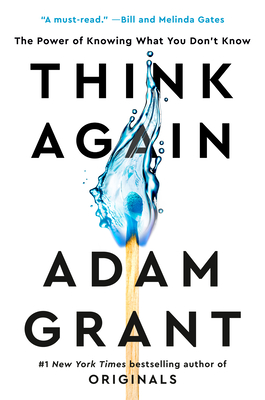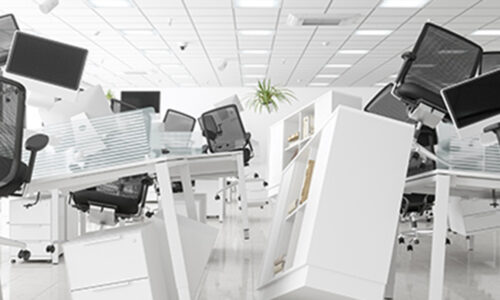Question yourself to Improve your flexibility
Mental agility is invaluable in a complex environment. It helps you adapt, learn, and get to grips with new situations without being encumbered by preconceived ideas. How agile are you?
Your brain is more rigid than you think. Cognitive biases encourage it to stick to its guns, brush off or denigrate anyone who contradicts it, and store only information that confirms previously held beliefs. Declaring that you’re open-minded doesn’t mean much if you don’t actively seek out new ideas that are far removed from your current convictions. You need flexibility now more than ever so that you can offload knowledge or opinions that no longer serve you well – or that even do you a disservice – and find new solutions. But acquiring and maintaining flexibility requires real practice.

Based on Think Again : The Power of Knowing What You Don’t Know
Adam Grant (Viking Press, february 2021).
Opt for flexibility over consistency
One of our many cognitive biases is the need for consistency. Our brain prefers anything that is consistent with its prior knowledge and decisions. This bias prompts it to discard data that might be out of sync, out of place, or that doesn’t fit into previously held conceptions. It’s a kind of cognitive laziness that serves a purpose most of the time: It means that we can react quickly by sticking to our usual modus operandi. But it’s a bias that can lead to unfortunate decision-making in situations where we need to unlearn our usual methods.
A study of firefighter deaths in forest fires illustrates the fact that we need to train ourselves to replace consistency with flexibility. When firefighters are caught up in a fire and their priority is escape, they tend to stay consistent with their identity as firefighters and carry all their heavy equipment with them. One firefighter cited in Think Again made it out of the forest alive only by scrambling up a ravine. He realized at one point that he still had his chainsaw in his hand – and subsequently ditched it. Others, less fortunate, were found still carrying all their tools.
Flexibility means taking a step back before following your first instincts – in this case, carrying all your gear. It would be better to take a few seconds to dump anything that is weighing you down in order to boost your chances of survival.
In the US, flexibility in this area has been taken a step further: Some states now prefer to let forests burn if no human life is threatened. It’s a radical shift in thinking that seems inconsistent with the primary mission – putting out fires – but which ultimately means lives will be spared.
Examine your own automatic reactions, especially those linked to your professional identity. Look at how they influence your decision-making, and whether you would benefit from more flexibility.
© Copyright Business Digest - All rights reserved




